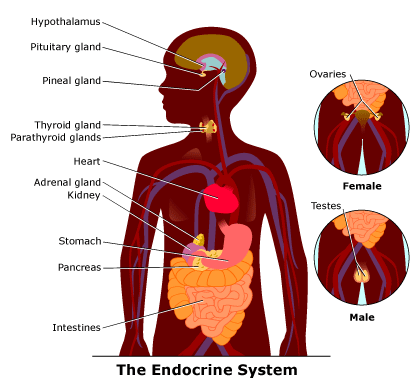Washington, DC–(ENEWSPF)–February 5, 2015. A brewing battle in the European Union (EU) over removing from the market Endocrine Disrupting Chemicals (EDC)s has heated up. An investigative report in The Guardian reveals that a European Union (EU) scientific paper, prepared to assist in the development of new mandatory EDC risk assessment standards, was never made public. According to the report, EU Commission sources say the release of the paper was quashed as a result of chemical industry pressure and political influence.
 At the core of the debate lies two EU regulations, one concerning biocidal products (EU 528/2012) and the second on “plant pest protectants” (EU 1107/2009). Both of these regulations required the EU Commission to produce draft measures concerning specific scientific criteria for the determination of endocrine disrupting properties by December 14, 2013. Under the regulations, chemicals within the biocidal and plant pest protectant categories that are categorized as having endocrine disrupting properties that may cause adverse effects in humans would be prohibited from use in the market place.
At the core of the debate lies two EU regulations, one concerning biocidal products (EU 528/2012) and the second on “plant pest protectants” (EU 1107/2009). Both of these regulations required the EU Commission to produce draft measures concerning specific scientific criteria for the determination of endocrine disrupting properties by December 14, 2013. Under the regulations, chemicals within the biocidal and plant pest protectant categories that are categorized as having endocrine disrupting properties that may cause adverse effects in humans would be prohibited from use in the market place.
As noted in the purpose and subject matter of the biocidal regulations, “The purpose of [the] Regulation is to improve the functioning of the internal market through the harmonization of the rules on the making available on the market and the use of biocidal products, whilst ensuring a high level of protection of both human and animal health and the environment. The provisions of this Regulation are underpinned by the precautionary principle, the aim of which is to safeguard the health of humans, the health of animals and the environment. Particular attention shall be paid to the protection of vulnerable groups.”
The reasons for the EU’s affirmative action to increase scrutiny of EDCs were strong, as increasing scientific research and studies continue to demonstrate the currently unmonitored risks of EDCs in everyday and chemical products in the EU and across the world. Common household products –detergents, disinfectants, plastics, and pesticides– contain chemical ingredients that enter the body, disrupt hormones, and cause adverse developmental, disease, and reproductive problems. These problems. known as endocrine disrupting effects, occur at levels far below current risk assessment safety standards under international and U.S. regulations.
After significant delays and despite the EU regulations’ clear edict to establish new, protective risk assessment criteria that must consider the full range of EDC adverse effects, in June of 2014 the EU Commission released a Roadmap recommending mostly ineffective EDC evaluation criteria. falling far short of what critics say is required by the EU regulations.
Environmental and health advocacy groups were quick to criticize the majority of options provided in the Roadmap and Commissioners made little secret of the fact that pressure from industry and international harmonization efforts were to blame for the delays and watered-down criteria. Yet, the extent of industry pressure was not widely reported.
“We were ready to go with the criteria and a strategy proposal as well, but we were told to forget about it by the secretary general’s office,” a Commission source told the Guardian. “Effectively, the criteria were suppressed. We allowed the biocides and pesticides legislation to roll over.”
Angeliki Lyssimachou, an environmental toxicologist for Pesticides Action Network Europe (PAN), said: “If the draft ‘cut-off’ criteria proposed by the commission had been applied correctly, 31 pesticides would have been banned by now, fulfilling the mandate of the pesticide regulation to protect humans and the environment from low-level chronic endocrine disrupting pesticide exposure.”
Both in the EU and the U.S., chemical industry influence on valid public efforts to establish more precautionary and protective standards for hazardous chemicals like EDCs continues to threaten environmental health progress. Join Beyond Pesticides as we continue the conversation on pesticide impacts to communities and the environment and ways to overcome industry opposition to progress this spring at Beyond Pesticides’ 33rd National Pesticide Forum in Orlando, FL, April 17-18th 2015. Early bird registration is in effect until March 15, so make your plans to register today!
All unattributed positions and opinions in this piece are those of Beyond Pesticides.
Sources: The Guardian; Pesticide Action Network Europe, wwwbeyondpesticides.org








